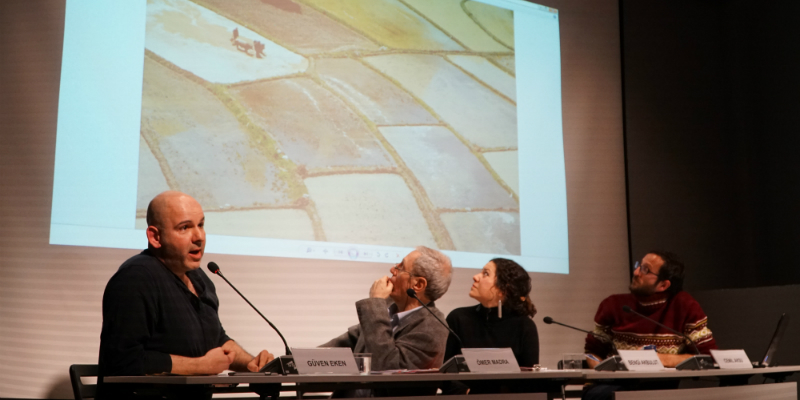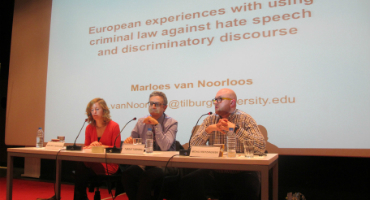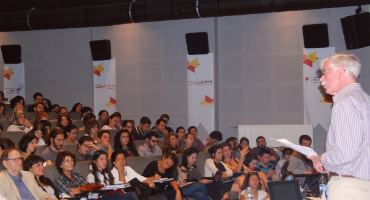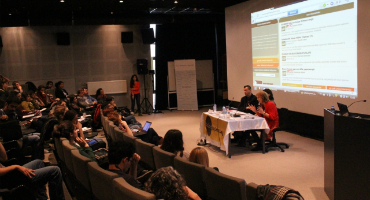ASULIS Discourse, Dialogue, Democracy Laboratory under the auspices of Hrant Dink Foundation held a panel discussion titled “Environmental Injustice and Discrimination” on February 2, 2017 in the Havak Hall of Anarad Hığutyun Building. Founder of Açık Radyo Ömer Madra, who has been focusing on global warming and climate change, moderated the panel. Bengi Akbulut, who has been working in the fields of political ecology of energy, resistance for the environment and literature on collectives; Cemil Aksu, co-editor of the book Sudan Sebepler - Türkiye’de Neoliberal Su-Enerji Politikaları ve Direnişler that examines the resistance movements against hydroelectric power plants in Turkey; and editor of Magma magazine and founder of Doğa Schools Güven Eken were the speakers of the panel.
After moderator Ömer Madra's opening speech on the way contemporary politics affects environment and climate struggles, Bengi Akbulut discussed the emergence of the notion of environmental justice as a field of activism and different aspects of environmental justice. She pointed out that people living in the regions where there is intense environmental impairment/pollution are affected by pollution differently and such regions are usually populated by people who are marginalized in terms of class and ethnicity. She noted that these socioeconomically disadvantaged groups don't have the means for diminishing the effects of environmental impairment and pollution, and they also don't have a voice in the decision making processes that cause environmental impairment.
Speaking after Akbulut, Cemil Aksu stated that the climate crisis will affect everyone in the long term, but the people who have the least responsibility in the climate change will be the ones who are affected by it most in the short and medium term. He said that all social inequalities are reflected in the inequalities caused by the climate and groups that are not seen as “acceptable citizens” are affected by the environmental injustices in the strongest terms.
The last speaker Güven Eken argued that the current environmental problems are results of the fact that people are dissociated from the nature. He said that this dissociation causes people to alienate from the nature and stop seeing the nature as a subject, and this alienation and problem of seeing the nature as an inanimate object can be eliminated by “touching the rocks”. Pointing out that the injustices against nature cannot be distinguished from the injustices against people, Eken concluded his speech by saying that people should take shelter in the nature again.





